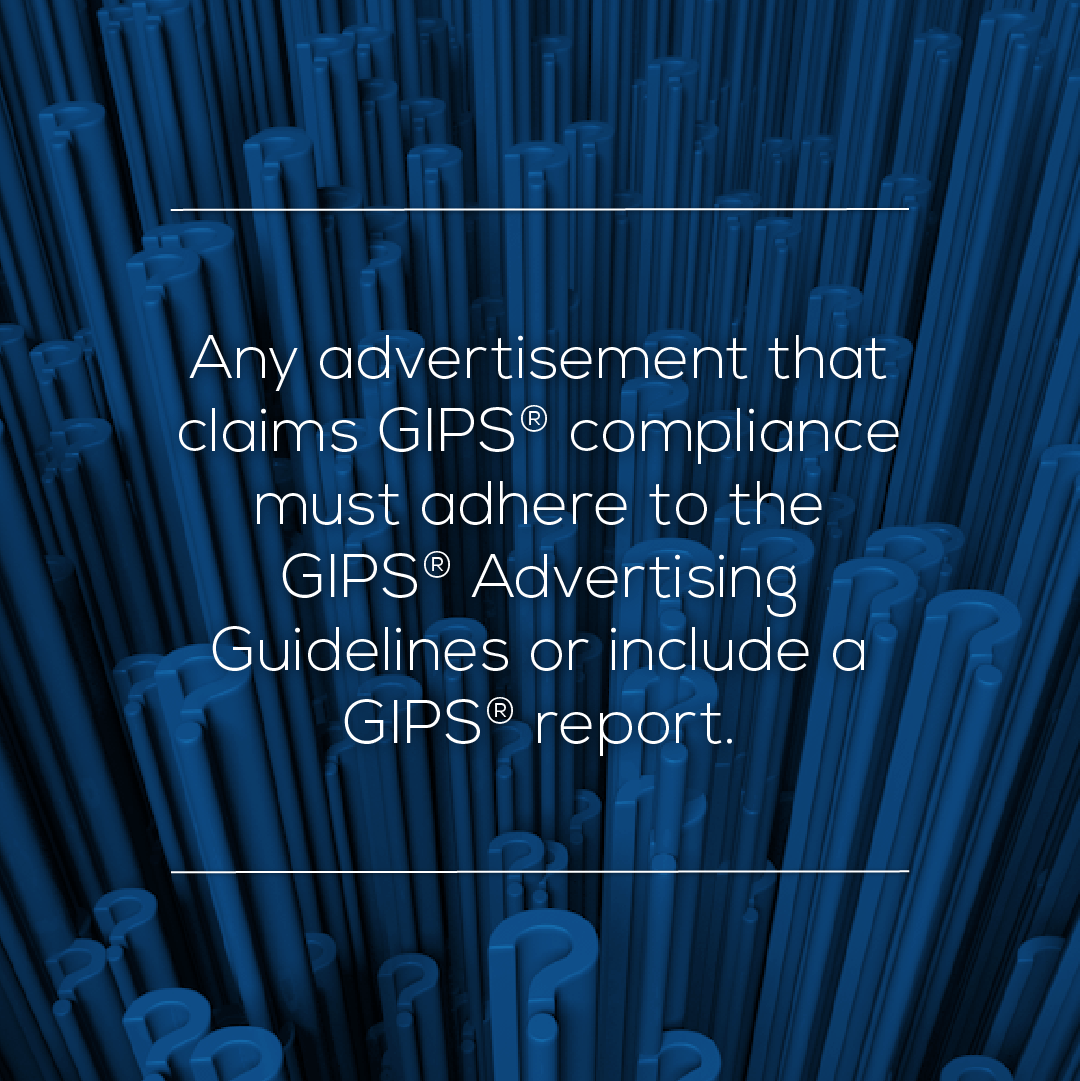GIPS® 2020 has left many firms with questions as to what exactly is changing and how they should proceed once the update is live. In an effort to provide insight into these changes to the standards, we’ve answered a few frequently asked questions floating around the industry.
Are the GIPS® Advertising Guidelines included in the claim of compliance?
No, firms that claim GIPS® compliance are not required to follow the GIPS® Advertising Guidelines. Firms are also not required to follow the guidelines when creating an advertisement unless they claim compliance in said advertisement. Any advertisement that claims GIPS® compliance must adhere to the GIPS® Advertising Guidelines or include a GIPS® report.
What are the different classifications for pooled funds?
 There are two classifications of pooled funds, which are used to determine funds relevance to their firm of the various provisions related to pooled funds. Broad Distribution Pooled Funds (BDPF) are pooled funds that are regulated under a framework that permits the general public to purchase or hold the fund’s shares and are not solely offered in one-on-one presentations. Limited Distribution Pooled Funds (LDPF) are any pooled funds that to not meet the definition of Broad Distribution Pooled Funds.
There are two classifications of pooled funds, which are used to determine funds relevance to their firm of the various provisions related to pooled funds. Broad Distribution Pooled Funds (BDPF) are pooled funds that are regulated under a framework that permits the general public to purchase or hold the fund’s shares and are not solely offered in one-on-one presentations. Limited Distribution Pooled Funds (LDPF) are any pooled funds that to not meet the definition of Broad Distribution Pooled Funds.
How should firms approach carve-outs now that they are included in GIPS® 2020?
While yes, carve-outs have been included in an effort to attract more private wealth managers and managers of private market instruments to claim compliance, they can be quite onerous and even turn out to be non-compliance traps. Firms must create and maintain composites that include standalone portfolios managed in the same strategy as the carve-outs with allocated cash. Returns and composite assets from the stand-alone composite must be included in the GIPS® Report of the carve-out with allocated cash.
Why were the private equity and real estate provisions removed from GIPS® 2020?
These sections were removed in favor of more generic provisions that encompass all private investments, including real assets, private equity, and other instruments that are illiquid, not publicly traded, and not traded on any exchange. The 2020 standards do contain a specific real-estate requirement for independent valuation as well, however the GIPS® Executive Committee only recommends independent valuations for non-real estate private market investments.
What does the effective date of 1 January 2020 mean?
The effective date of 1st January 2020 means that GIPS® reports that include performance for periods ending on or after 31st December 2020 must be prepared in accordance with GIPS® 2020. GIPS® reports that include returns for periods ending prior to 31st December 2020 may be prepared in accordance with the 2010 version of the standards.
Conclusion
While there is certainly a plethora of things to discuss around GIPS® 2020, most firms will not have to alter their current protocols much to continue claiming compliance with the standards. For a more comprehensive look into GIPS® 2020, download our eGuide here.
{{cta(’99a1eb24-777f-49c9-a281-0adf38fc8341′)}}